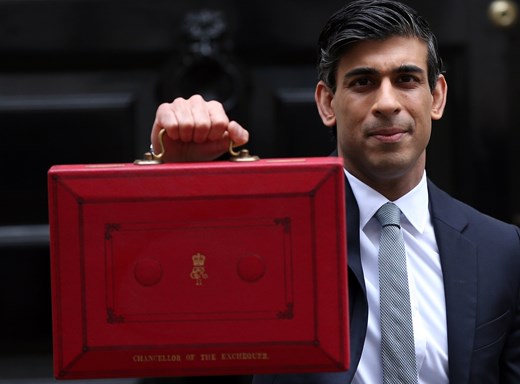Despite tax and spending U-turns following the Mini-Budget, Hunt is seeking to reduce the gap in UK finances as well as keeping downward pressure on inflation. The Office for Budget Responsibility (“OBR”) saw an average inflation rate for this year of 9.1% and 7.4% predicted for next year.
Even though the UK tax rate is at a 70-year high, the Government is aiming to raise more funding through increases.
The Chancellor’s secondary goal is to reassure financial markets by demonstrating a return to ‘serious’ financial management of the economy and tax system. This has been set by focusing on long-lasting issues such as overhauling R&D reliefs and implementing the Organisation for Economic Co-operation and Development (“OECD’s”) two-pillar solution to address the tax challenges arising from the digitalisation of the world economy. The overall view still being that we should strive for growth within the UK.
What tax changes will we see?
Personal Tax
- Inflation will be used to generate larger future tax revenues by not increasing tax bandings and allowances in future years until April 2028. This ‘fiscal drag’ tactic has often been used to increase revenue in the past, by increasing the number of higher rate income taxpayers as incomes increase.
- More taxpayers will become liable to the 45% additional rate of income tax, as the threshold will be reduced from the current level of £150,000 gross income to £125,140 as from April 2023.
- Other personal tax allowances and thresholds for income tax, National insurance contributions (“NIC”) and inheritance tax will be frozen until April 2028.
- In measures to equalise the tax rates on unearned income, the annual dividend allowance will reduce from £2,000 to £1,000 next year, and to £500 from April 2024.
- The annual capital gains exemption will reduce from £12,300 to £6,000 next year, and to £3,000 from April 2024.
Business Tax
- As previously confirmed, the planned increase in the corporation tax rate to 25% for companies with over £250,000 in profits will go ahead. This will still be the lowest rate in the G7 ensuring the UK remains strongly competitive internationally.
- The Government will also implement the OECD Pillar 2 rules for a global minimum corporate tax rate, for accounting periods beginning on or after 31 December 2023. This will protect the UK tax base against aggressive tax planning and reinforce the competitiveness of the UK, raising £2.3 billion a year by 2027-28.
- The employer NIC threshold will be frozen at £9,100 until April 2028.
- The VAT registration threshold will be maintained at £85,000 from April 2024 until March 2026.
- The Annual Investment Allowance is set permanently at £1million as from April 2023. This amounts to full expensing for an estimated 99% of UK businesses, which means that those businesses can write off the cost of qualifying plant machinery investment in one go.
- R&D tax relief for SMEs deduction rate cut to 86% from 130% and the credit rate to 10% but increase the rate of the separate R&D expenditure credit from 13% to 20%. The overall plan is to help make Britain the "new Silicon Valley" which will also see public funding for R&D (research and development) increased to £20 billion by 2024/5.
- transfer pricing documentation: Master File/Local File – from April 2023, large multinational businesses operating in the UK will be required to keep and retain transfer pricing documentation in a prescribed and standardised format, set out in the OECD‘s Transfer Pricing Guidelines (Master File and Local File). This will be legislated for in Spring Finance Bill 2023
- First Year Allowance for electric vehicle charge points – the government will extend the 100% First Year Allowance for electric vehicle charge points to 31 March 2025 for Corporation Tax and 5 April 2025 for Income Tax
- The Energy Profits Levy has been extended to March 2028, and increased from 25% to 35% from January 2023. The Government has also introduced a new temporary 45% Electricity Generator Levy from as from January 2023.
Other Tax Measures
- Electric vehicles will no longer be exempt from Vehicle Excise Duty (‘road tax’) as from April 2025.
- Stamp Duty Land Tax cuts already announced will remain in place until 2025.
How can we help?
Our tax experts span a global office network. The team have a proven track record in assisting clients and entities administered through new taxation and compliance requirements. We take an active role in industry consultations and disseminating our knowledge into the market, including presenting external training events. We take pride in our ability to deliver the solutions required by our clients to support their investment structures, in an ever-evolving industry.
Contact Us
For help and support visit our Tax & VAT page or contact the Apex Team.



